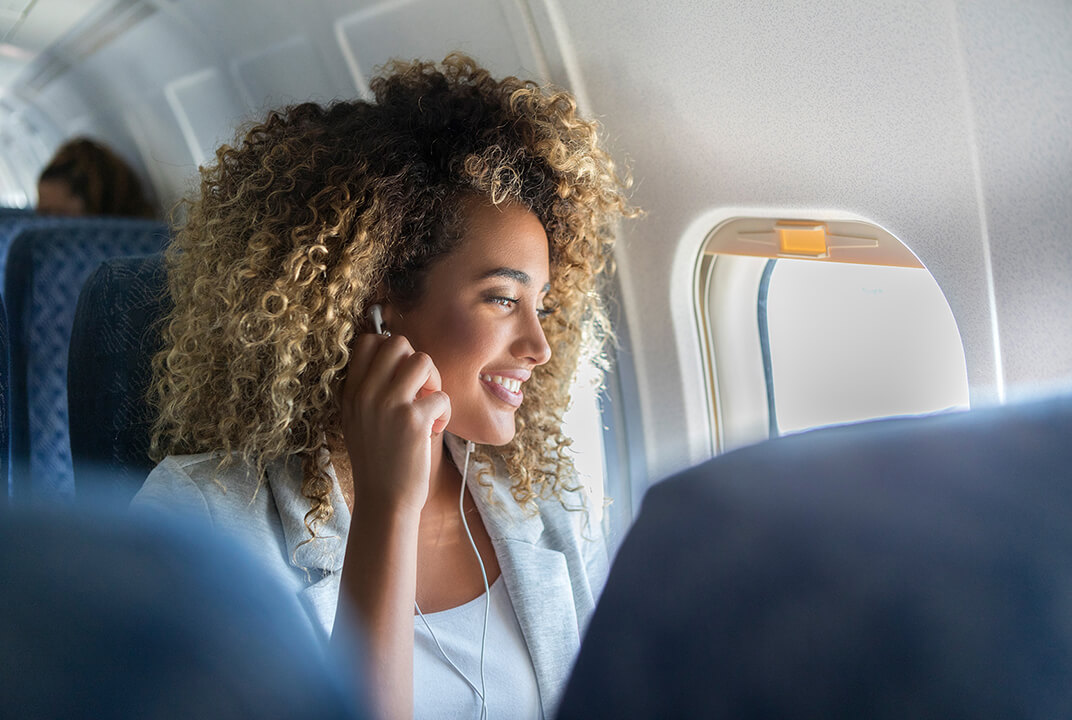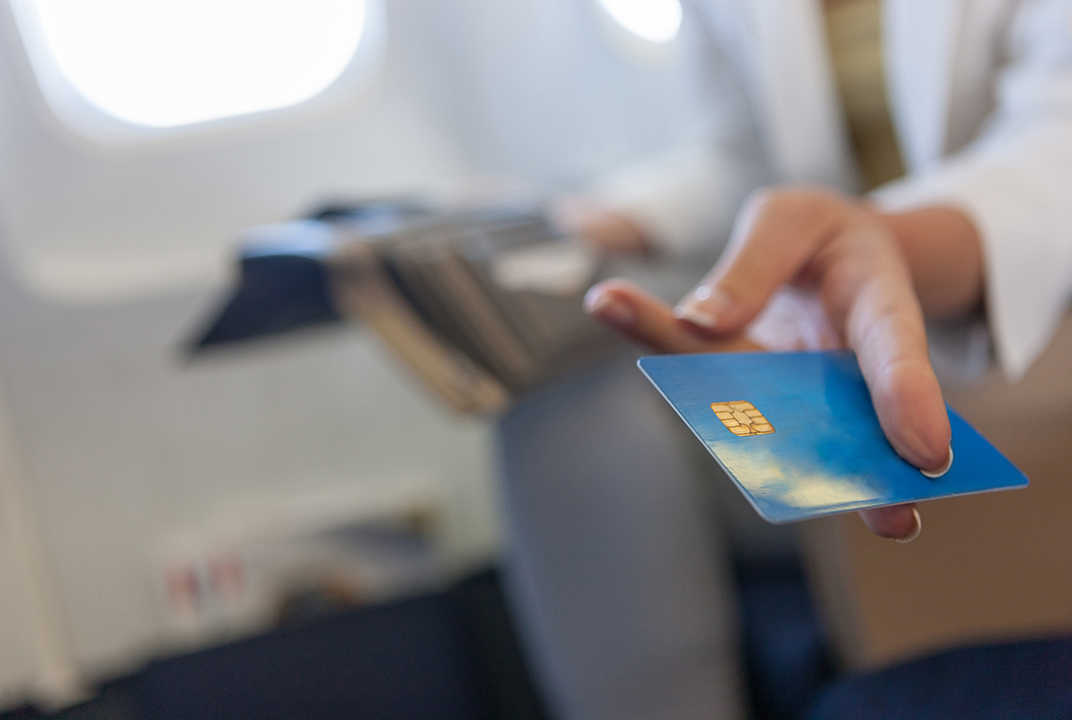Insight | Collaborating for recovery at FTE APEX
Collaborating for recovery at FTE APEX
Aviation
As the air transport industry’s first major digital tradeshow of 2020, FTE APEX Virtual Expo provided Inmarsat with the perfect opportunity to discuss how connectivity can drive aviation’s recovery.
The global aviation industry was brought together for a virtual exhibition and conference of new proportions last month, organised by Future Travel Experience (FTE) and the Airline Passenger Experience Association (APEX). As the first major aviation tradeshow of 2020, FTE APEX Virtual Expo saw over 70 exhibitors operate virtual stands, whilst more than 180 speakers presented 40+ hours of educational conference content online.
Designed to enable global collaboration and nurture the industry’s recovery, the event brought together a diverse range of exhibitors and aired thought-provoking conference sessions. A vast array of topics were covered, everything from transforming the airport experience with cutting-edge technology such as biometrics and automation to enhancing the onboard experience through inflight entertainment and connectivity, as well as interiors, service and catering, hospitality and retail.
Opportunity for transformational growth
As Diamond sponsor of the event, Inmarsat Aviation’s President Philip Balaam presented a session about why digitalising the inflight experience is more critical now than ever. Balaam shared his belief that although the COVID-19 pandemic has resulted in the aviation industry’s greatest ever crisis, it has also provided an unprecedented opportunity.
He went on to explain that the pause in ‘business as usual’ created by the crisis has left the industry in a unique position, where it can challenge preconceptions of what is possible for the next decade and beyond. He used the example of aviation’s adoption of new concepts of security to cope with threats after 9/11, and how this led to new business models that have permanently changed the way things are done.
“This time around, the agility and ingenuity that our industry is famed for can help usher in a new era of digital transformation, because if necessity is the mother of invention, technology is now unquestionably the universal enabler,” he stated.
Digitisation will drive recovery
Inmarsat has long been prophesying about the impact of digitalisation on every aspect of airline operations, from enhancing efficiency, to sustainability and competitiveness, as well as unlocking new revenue. Many airlines have already acted on the commercial potential of engaging passengers with inflight connectivity but as with many investments in innovation this year, progress on this front has stalled because of the financial constraints airlines are now under. However, Balaam argues that the digital acceleration of the inflight experience has never been more important to the industry and needs to be prioritised as it will drive recovery.
Balaam outlined three ways in which digital innovation in the cabin can make a substantial contribution to industry recovery. Firstly, over the short-term, digital technologies can minimise touchpoints and contact with others, helping to rebuild passenger confidence in air travel.
Inmarsat’s recent Passenger Confidence Tracker surveyed over 9,500 worldwide, indicating that 71% of passengers would welcome the use of their own mobile device for inflight entertainment, with 76% preferring contactless catering and 83% favouring contactless payment. The survey also showed that 89% of passengers were reassured by the idea of real time reallocation of empty seats for social distancing.
Balaam went on to explain that digitisation is not just a strategy for the short-term but that it will support a more sustained period of profitable growth too. Outlining that the new expectations that have been set on the ground during these lockdown periods have also set new demands in the air, meaning that passengers will simply no longer accept being digitally disconnected whilst flying. This was backed up by the fact that Inmarsat is seeing increased take up rates for its EAN inflight broadband service in Europe, that are seven to 10 times higher than they were before the crisis began.
And thirdly, Balaam explained that he believes that during recovery, when airlines battle for market share, digital services will become a critical brand differentiator. As carriers look to rapidly improve financial results, the aircraft cabin could become a vital engagement and monetisation channel, just as airline websites have been up until now.
Opening the debate
Balaam’s session was followed by an interesting panel discussion with Joe Bentley, CTO, Panasonic Avionics and Babar Rahman, Head of Global Sponsorships, CSR and IFEC, Qatar Airways to further explore how digital services are already being used to promote trust and rebuild passenger confidence. Focusing on the role of the passenger’s own mobile device to enable a contactless journey, they explored whether these changes were likely to be permanent.
They also delved a bit deeper into how they each believe digitalisation can help the industry to recover and the important role that digitalised ancillary services will play. They asked which specific technologies might be most influential in shaping the future of passenger experience and whether airlines really have to become digital businesses that just happen to fly planes.
All round success
Welcoming interested potential customers to the virtual stand, Inmarsat shared details of its award-winning GX Aviation, EAN and Jet ConneX inflight broadband services. Details of the huge investments the business has made in the future were communicated, outlining the facts about the technology roadmap set to increase capacity to meet the world’s constantly growing demand for connectivity. Inmarsat’s newest and most powerful satellite, GX5 entered commercial service during the week of the event, marking the beginning of the journey to deliver this ambitious roadmap, supporting the industry’s digital transformation – and recovery.
Although the event is now closed, all of the content filmed across the two days is still available online until 8 January 2021. It can be accessed here: https://www.futuretravelexperience.com/fte-apex-virtual-expo/


